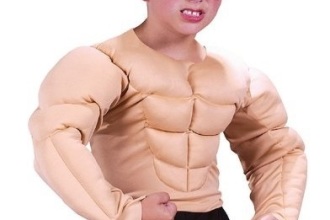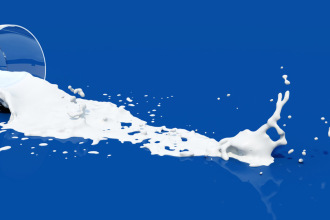December party season is in full swing and for the social butterflies among us that means a non-stop merry-go-round of parties, work and sleep and inevitably, the dreaded hangover. Surprisingly, research[1] indicates that light to moderate drinkers tend to suffer hangovers most whilst heavy drinkers report much lower rates. Here are 10 scientifically-supported ways to help deal with a hangover or even prevent it from happening in the first place:
On the Night
- Don’t drink on an empty stomach. Food will slow down the rate at which you absorb any alcohol and protect your gut lining from irritation. Before the party starts aim to eat a meal that combines protein and slow-releasing carbohydrate for example, grilled fish, brown rice and green vegetables, or meat with new potatoes. The old wives tale about drinking milk to line your stomach is best ignored; it’s a common allergen and encourages mucous production.
- When you start to drink, aim to pace yourself. Diluting wine with sparking water or spirits with mixers is one way. Or have a glass of water between every alcoholic drink to slow down your intake.
- Always opt for good quality over cheaper alcohol. It will contain less of the additives that can worsen your hangover. Research has also found that clear spirits, for example vodka, are better tolerated than darker drinks like red wine or rumwhich contain congeners (substances produced during fermentation), which contribute to hangovers. Also, mixing your drinks can make hangovers far worse, so stick to one type of drink all night
- We all know that alcohol is a diuretic; it makes you pee a lot, which is why you get dehydrated and the nasty hangover symptoms such as dry mouth, headache, nausea, a queasy stomach and fatigue. Drink lots of water (preferably before going to bed).
- Vitamins B and C helps your liver to detoxify alcohol, while the amino acid glutamine can help to repair any damage to your gut. Before you go to bed, take 2000mg ofvitamin C and a heaped spoonful of glutamine powder (approximately 5 grams) in a large glass of water. Do the same when you wake up, including some extra B vitamins in a B complex formula to replenish what’s lost from a night of drinking.
The Morning After
- Hangovers begin when blood alcohol levels fall, so while hair of the dog will temporarily ease symptoms it perpetuates the cycle, stopping you from recovering
- Alcohol lowers blood sugar, causing fatigue and headaches. A protein and carb-rich breakfast will raise your blood sugar levels. If you can face food; freestyle your own Huevos Rancheros with a tin of black beans, avocado, eggs and a spicy sauce. Eggs contain taurine which has been shown toreverse liver damage. Alternatively knock up an almond milk and frozen berry smoothie, the natural sugars and vitamins will give you the lift you need
- If if your hangover includes diarrhoea, sweating, or vomiting, your dehydration will be worse, so any fluids will help. Tissues around the brain are mostly made of water, and dehydration will shrinkthese tissues, creating pressure in the head, and ultimately a banging headache. Sip a mug of warm ginger tea if you have an upset stomach as ginger has been shown to help combat nausea. If you can’t manage that even a few sips of water will help. A cup of coffee or tea will help banish grogginess as it contains caffeine which is a stimulant, but stick to one as caffeine is also dehydrating
- When dehydrated, we not only lose water, but electrolytes, too. Replace stores by snacking onpotassium-rich foods like bananas or spinach
- Painkillers will only add to the load on your already struggling liver, but if you need them, drink lots of water and eat a meal containing both carbohydrate and protein and opt for paracetamol over aspirin or other non-steroid-anti-inflammatory painkillers, as these can further irritate an already fragile stomach.
Shani Shaker BA (hons), dipION, mBANT, CNHC, is a registered nutritional therapist with a focus on regenerative and functional nutrition, disordered eating, addiction and mental health. Based in London her services include one-to-one coaching, group classes and Skype sessions. Contact her at [email protected]
Disclaimer: The information provided is intended for your general knowledge only and is not a substitute for professional medical advice or treatment for specific medical conditions. Please consult your healthcare provider with any questions or concerns you may have regarding your condition. Supplementation should only be temporary. If you’re eating a nutrient-rich diet, extra supplementation should only last for a month or two, just long enough to resolve the deficiency.
[1] 76% of participants experience a hangover the morning after moderate drinking i.e. alcohol concentration rose to 0.115 g%. Ref: Howland J, et al (2008). The incidence and severity of hangover the morning after moderate alcohol intoxication. Addiction; 103(5):758-65.




